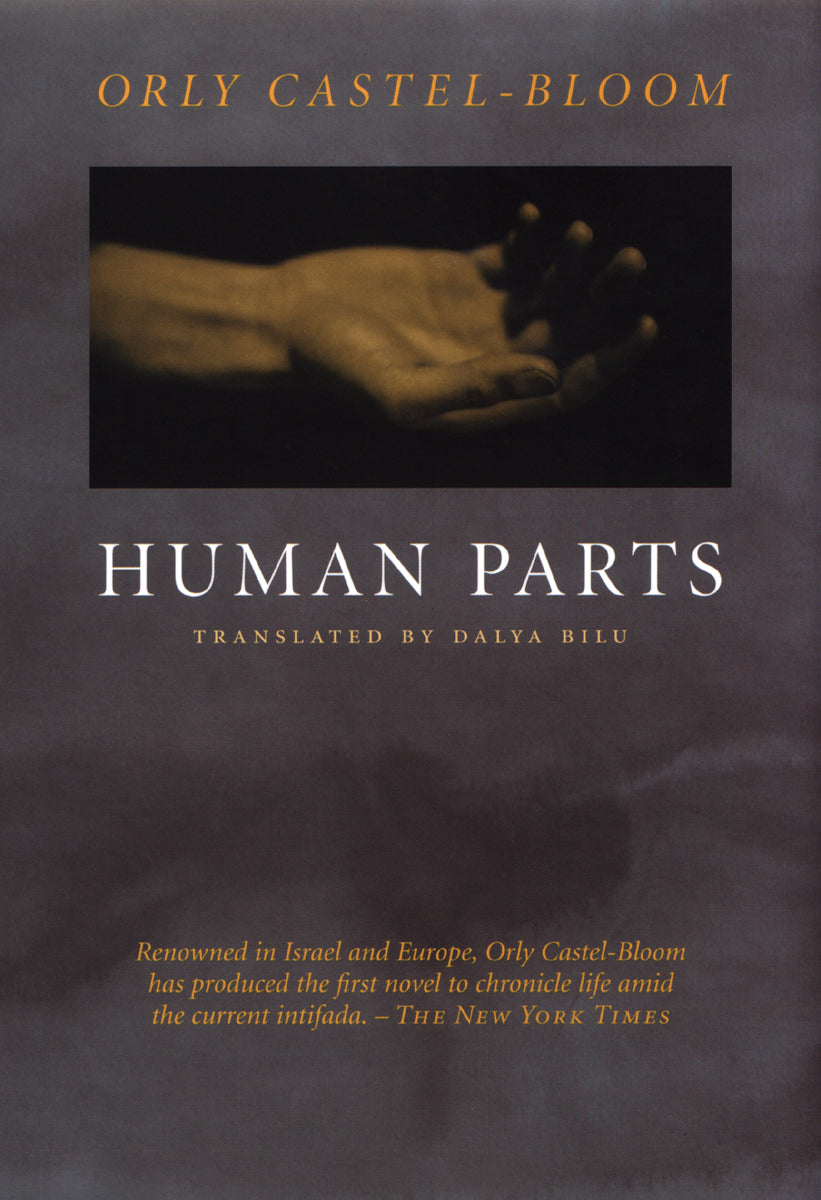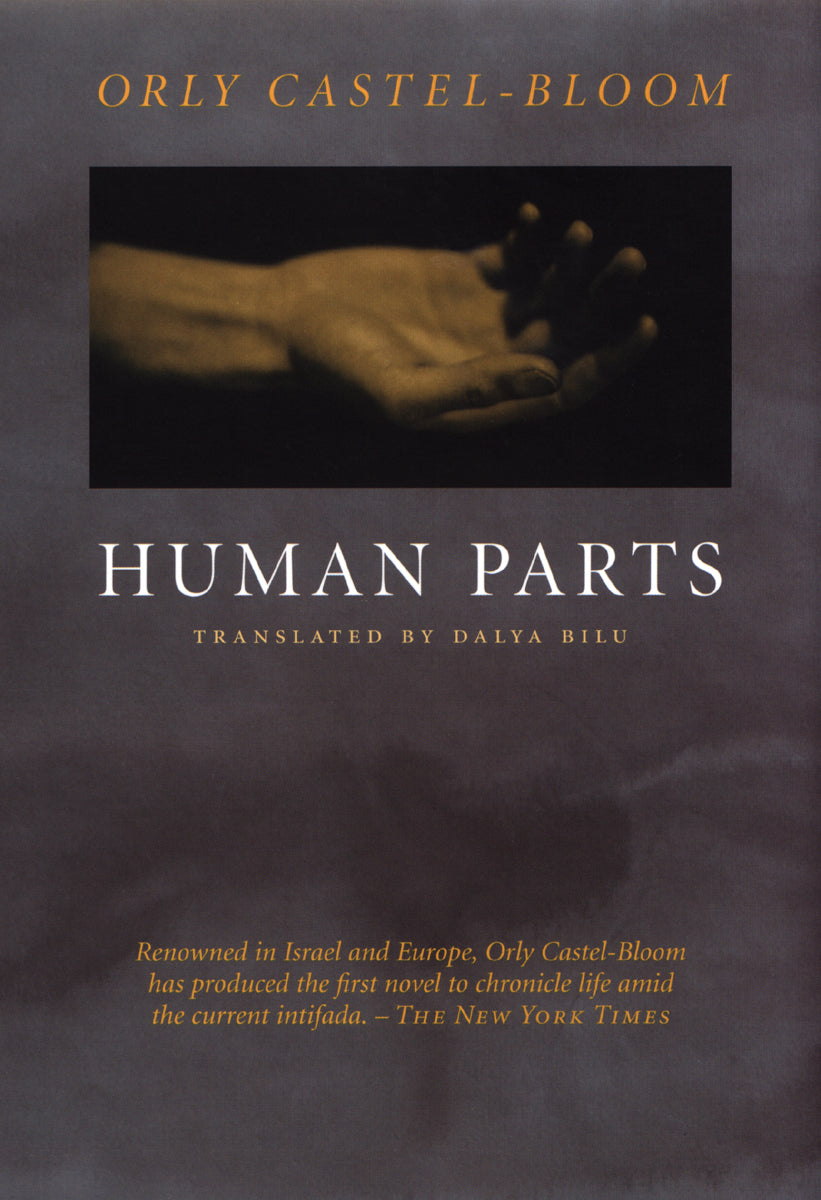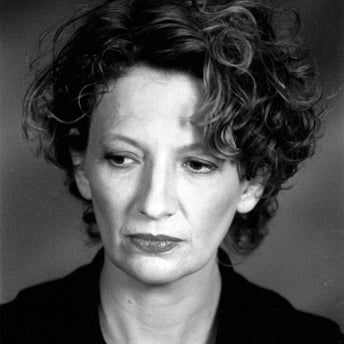
"It was an exceptional winter." With deceptive understatement, Orly Castel-Bloom draws back the curtain on her disturbing, revelatory novel set in Israel during the Al Aksa intifada. This is a world already regularly interrupted by terrorist ambushes and suicide bombs. And now it is further plagued by a Saudi flu that is decimating the population, and by apocalyptic weather that brings a ruinous winter after eight years of drought. The economy is shot to pieces. Hail stones as big as dinner plates are falling from the sky.
And yet, against this backdrop of monumental affliction, ordinary people are still trying to lead normal lives. Kati Beit-Halahmi, an impoverished cleaner, is snatched up by a community television program and given her full fifteen minutes of fame. Iris Ventura, divorced with three children, is wondering how she can afford both to replace her broken washing machine and have some essential dental work done. And the Israeli president, Reuven Tekoa, travels from hospital to funeral, musing on the state of the nation from the back of his limousine.
Orly Castel-Bloom spins a web of filament-fine connections between her characters, whose preoccupations, she reminds us, are not so very different from our own. Death or disaster might intrude at any moment, but people still watch game shows on TV, go to the laundromat, and train to be beauticians.
One can draw a number of conclusions from this excellent novel, and I have singled out one of them: On several occasions Bergson pondered why so few people had come to the shiva. The explanation he found most persuasive was that people had had enough of death. —Ma'ariv Weekend Supplement


